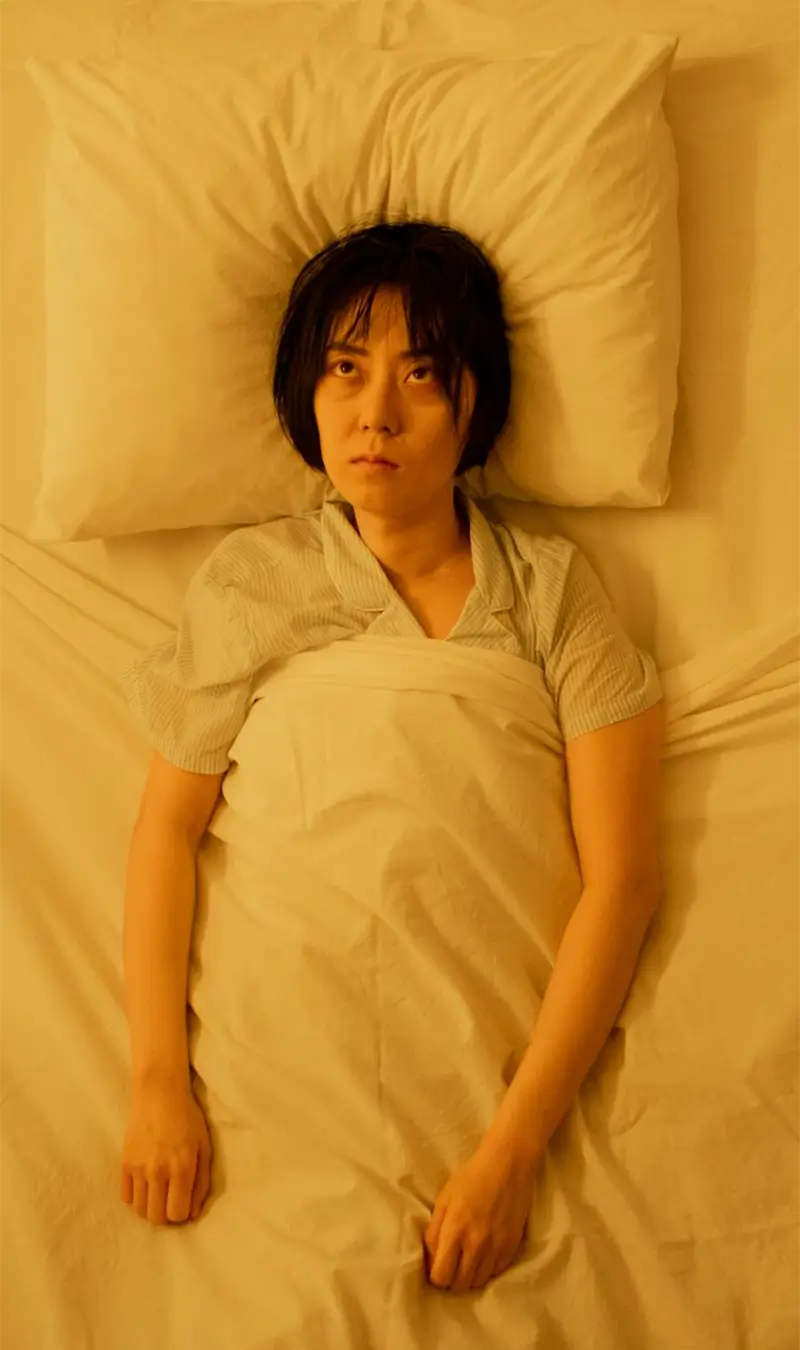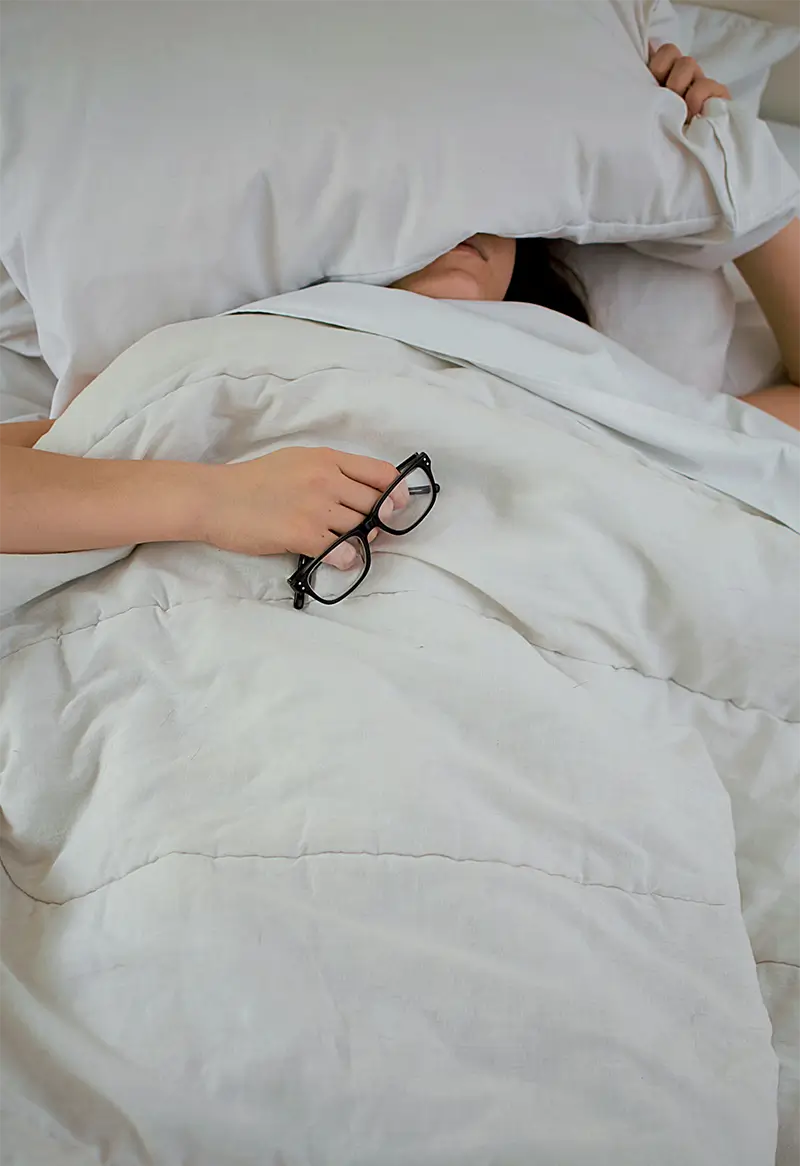Our therapeutic focus
Sleep Issues
It’s normal to have occasional restless nights. Stress, room temperature, and even certain foods and drinks can disrupt sleep. However, if you consistently struggle to fall asleep, wake up too early, or feel drained despite sleeping eight hours, it’s worth evaluating your sleep habits. This is especially important if poor sleep is affecting your daily life.

Sleep-Wake Disorder
A poor night’s sleep can not only leave you tired and lacking energy during the day, sleep deprivation can also affect your mood, making you grumpy and irritable. Some of the most common sleep-wake disorders include:
Insomnia
This is the most common sleep-wake disorder, affecting up to 30% of adults. People with insomnia have difficulty falling asleep, staying asleep, or waking up too early. They may also feel tired during the day, have trouble concentrating, or be irritable.
Sleep apnea
This disorder causes pauses in breathing during sleep. The pauses can last for a few seconds or even minutes. Sleep apnea can lead to daytime sleepiness, snoring, and other health problems.
Restless legs syndrome
This condition causes an irresistible urge to move the legs, especially at night. The urge is often accompanied by uncomfortable sensations in the legs, such as tingling, crawling, or pain.
Narcolepsy
This is a neurological disorder that causes excessive daytime sleepiness. People with narcolepsy may fall asleep suddenly and unexpectedly during the day. They may also experience cataplexy, which is a sudden loss of muscle control.
Sleep-wake disorders can have a significant impact on mental health. People with sleep-wake disorders are more likely to experience depression, anxiety, and other mental health problems. Sleep-wake disorders can also make it difficult to manage existing mental health conditions.
If you are experiencing any of these symptoms, it is important to see a doctor. Sleep-wake disorders can have a significant impact on your health and well-being. Early diagnosis and treatment can help improve your sleep and quality of life.
Symptoms of Sleep Issues
If you are experiencing any of these sleep issues listed below, it is important to get diagnosis and treatment. There are many effective treatments for sleep-issues, including lifestyle changes, cognitive behavioral therapy, and medication. Early diagnosis and treatment can help to prevent or reduce the long-term effects.
Difficulty falling asleep
This is a common problem that can be caused by stress, anxiety, caffeine, or other factors.
Waking up frequently during the night
This can be caused by sleep apnea, restless legs syndrome, or other medical conditions.
Waking up too early in the morning
This can be caused by depression, anxiety, or other factors.
Feeling tired during the day
This can be caused by any of the above sleep issues, as well as other factors such as stress, poor diet, or lack of exercise.
Feeling overwhelmed or stressed
This can be caused by sleep deprivation, as well as other factors such as work, family, or financial problems.
Being irritable or moody
This can be caused by sleep deprivation, as well as other factors such as stress, anxiety, or depression.
Increased risk of accidents or injuries
This can be caused by daytime sleepiness, which can make it difficult to stay alert and focused.


Types of Sleep Issues
Understanding different types of sleep issues can help identify and address any problems you might be experiencing. Sleep disturbances can manifest uniquely for each individual. You might consistently encounter a single type of sleep issue, or you may experience a combination of different ones over time.
Nonetheless, some of the most frequent sleep-related concerns include:
Difficulty falling asleep
We all have that friend who seems to doze off the moment their head touches the pillow, something most of us envy. Experts suggest that taking up to 30 minutes to fall asleep is healthy and normal. However, some individuals find it takes much longer, often lying awake for hours. This prolonged struggle to fall asleep can lead to significant discomfort and exhaustion when the morning alarm rings.
Waking up during the night
While some individuals have no difficulty falling asleep, they struggle to maintain a restful night’s sleep. They may repeatedly awaken for brief periods throughout the night or wake up in the middle of the night and find themselves unable to fall back asleep for hours.
Waking Up Early
Some individuals find that, despite their best efforts, their bodies naturally wake them up before dawn and won’t allow them to fall back asleep. While some may consider this an advantage, it is often unwelcome for those who experience it. Waking up so early often results in feelings of fatigue later in the morning, causing them to ‘crash’ and feel sleepy. Consequently, they tend to fall asleep earlier in the evening, which perpetuates a challenging cycle.
Causes of Sleep Issues
Ever feel like you’re battling a sleep monster every night? You’re not alone! Sleep issues are super common, and there are tons of reasons why you might be tossing and turning. Let’s dive into some of the main culprits.
Stress, Stress, Stress
You know that feeling of your mind racing when you’re trying to shut off for the night? That’s stress at work! It’s a major sleep disruptor, and it can be tough to switch off. Life’s worries, work deadlines, and even everyday anxieties can all contribute to a restless night.
Lifestyle Choices
What you eat and drink can also affect your sleep. Consuming caffeine or alcohol too close to bedtime can disrupt your sleep cycle. Plus, irregular sleep schedules—like working night shifts—can throw your body’s internal clock out of whack. Try to maintain a balanced diet and limit stimulants in the evening.
The Digital Dilemma
We’re all glued to our screens these days, but that blue light emitted from phones and computers can really mess with your sleep. It tricks your brain into thinking it’s daytime, making it harder to wind down. Try dimming the lights and putting away your devices an hour or two before bed.
Aging
As we get older, our sleep patterns naturally change. Older adults often experience lighter sleep and may wake up more frequently during the night. While this is a normal part of aging, it can still be frustrating. Staying active and maintaining a healthy lifestyle can help improve sleep quality as we age.
Poor Sleep Habits
Believe it or not, your bedtime routine can make a huge difference! If you’re scrolling through your phone right before bed or drinking coffee late in the day, you might be sabotaging your sleep. Establishing a calming pre-sleep routine and sticking to a consistent sleep schedule can work wonders.
Medical Conditions
Certain health issues can disrupt your sleep. Conditions like chronic pain, asthma, or even allergies can make it uncomfortable to sleep. Additionally, more serious conditions like depression, obesity, and heart disease can also play a role in sleep disturbances.

Sleep-Wake Disorder and Mental Health
The connection between sleep and mental well-being is undeniable. Chronic sleep deprivation can significantly impact emotional health, while mental health conditions often manifest as difficulty falling asleep or staying asleep.
The Vicious Cycle
Imagine this: you’re feeling stressed about work. This stress makes it hard to fall asleep. You toss and turn, your mind racing. The next day, you’re exhausted, making it even harder to concentrate at work, increasing your stress. This is just one example of how sleep issues and mental health can feed each other, creating a vicious cycle that can feel impossible to break.
Mental Health Conditions and Sleep
Many mental health conditions, like anxiety, depression, bipolar disorder, and PTSD, can significantly disrupt sleep. Insomnia is a common companion to depression, while anxiety can lead to racing thoughts that prevent sleep. Nightmares and flashbacks associated with PTSD can shatter any chance of peaceful rest. Conversely, sleep deprivation can mimic or worsen symptoms of these conditions, creating a confusing and distressing situation.
The Impact of Poor Sleep on Mental Well-being
Even without a diagnosed mental health condition, chronic poor sleep can wreak havoc on your emotional state. It can lead to:
- Increased irritability and mood swings: Feeling short-tempered and emotionally volatile.
- Difficulty concentrating and making decisions: Foggy thinking and impaired cognitive function.
- Reduced motivation and energy levels: Feeling constantly drained and uninspired.
- Heightened stress and anxiety: A diminished ability to cope with daily challenges.
- Increased risk of developing mental health conditions: Prolonged sleep deprivation can be a significant risk factor.
Breaking the Cycle: Coping Strategies
The good news is that there are many effective strategies to break this cycle and improve both sleep and mental well-being. These include:
- Prioritizing Sleep Hygiene: This involves establishing a regular sleep schedule, creating a relaxing bedtime routine, ensuring a dark, quiet, and cool sleep environment, and avoiding caffeine and alcohol before bed.
- Managing Stress: Practicing relaxation techniques like deep breathing, meditation, or yoga can significantly reduce stress and improve sleep.
- Seeking Professional Help: Talking to a therapist or counselor can help you address underlying mental health issues that may be contributing to sleep problems. Cognitive Behavioral Therapy for Insomnia (CBT-I) is a highly effective treatment for insomnia.
- Addressing Physical Health Concerns: If you have any underlying medical conditions, it’s essential to seek treatment from a doctor. Conditions like sleep apnea, restless legs syndrome, or chronic pain can significantly impact sleep.
- Mindful Movement: Regular exercise, but not too close to bedtime, can improve sleep quality and reduce stress.
- Healthy Diet: A balanced diet plays a crucial role in overall health, including sleep and mental well-being.
It’s important to remember that improving sleep and mental health is a journey, not a destination. Be patient with yourself, celebrate small victories, and don’t hesitate to seek professional help when needed. Taking care of your sleep is an act of self-care, and it’s essential for a healthy and fulfilling life.
Important Reminder
Seeking help is an indication of strength not weakness. Immediate action can save lives; so put safety first and seek help when necessary.
